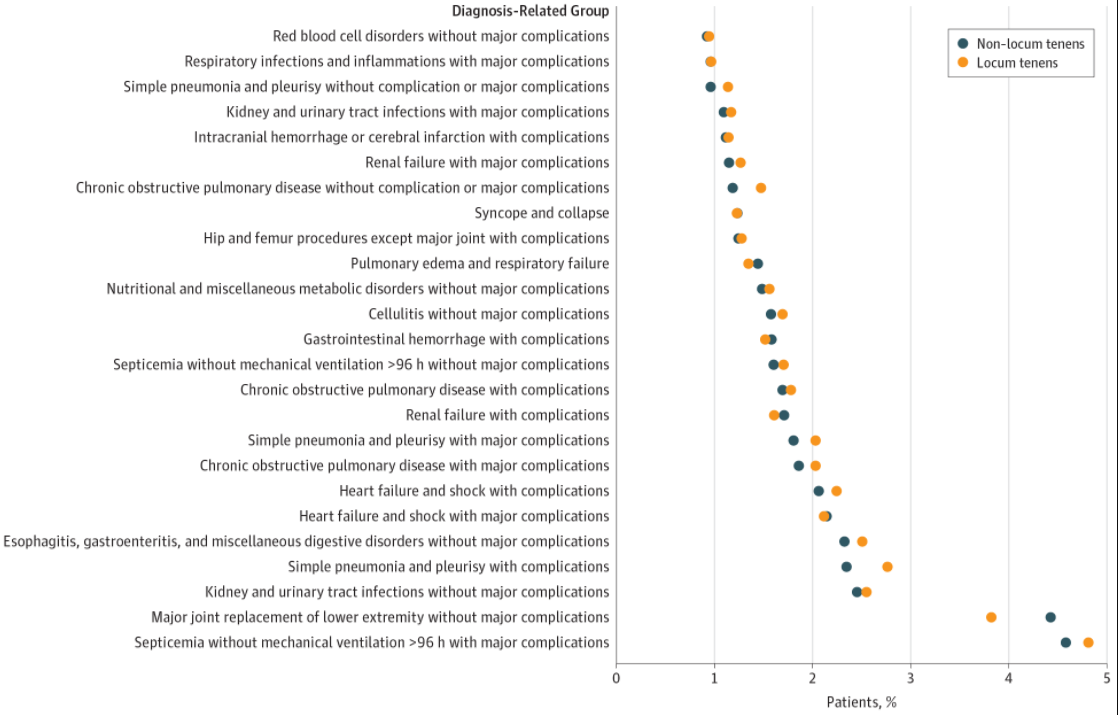Do locums hospitalists outperform…or even make the cut? A new investigation tackles the question, and I will get right to it.
In a nutshell, locums docs provided a similar level of care as staff doctors according to a JAMA study published last week. Researchers analyzed 1.8 million Medicare patients hospitalized between 2009 and 2014 who were treated by F/T hospitalists (identified by submitting >90% inpt billing codes) versus locums hospitalists (there is a locums billing code–who knew). The investigators did not find any significant difference in 30-day mortality rates between patients groups.
Secondary outcomes included inpatient Medicare Part B (physician) spending, LOS, and 30-day readmits. Here full-time hospitalists differentiated themselves:
Differences in patient characteristics, demographics, comorbidities, and reason for admission between locum tenens and non–locum tenens physicians were not clinically relevant. Treatment by locum tenens physicians, compared with treatment by non–locum tenens physicians (n = 44,520 physicians), was not associated with a significant difference in 30-day mortality (8.83% vs 8.70%; adjusted difference, 0.14%; 95% CI, -0.18% to 0.45%). Patients treated by locum tenens physicians had significantly higher Part B spending ($1836 vs $1712; adjusted difference, $124; 95% CI, $93 to $154), significantly longer mean length of stay (5.64 days vs 5.21 days; adjusted difference, 0.43 days; 95% CI, 0.34 to 0.52), and significantly lower 30-day readmissions (22.80% vs 23.83%; adjusted difference, -1.00%; 95% CI -1.57% to -0.54%).
I liked this figure comparing the DRGs seen by each practitioner group. Note the difference in joints at the bottom:

A few things. For one, mortality is a messy outcome to measure (low-frequency event for individual docs) and for me, it’s not the end result I am most interested in. Second, the secondary analysis is what I want to know more about and requires more study. The signal is full-time docs outperform–but the result is still tentative and only hypothesis generating. Third, and of most curiosity, are many hospitalist groups hiring “hobbyists,” i.e., docs who are sticking around for a year or two looking for fellowships or still deciding on a career path. In my book, they are not lifers, don’t have the F/T perspective, don’t build an inpatient provider mindset for the long haul–and probably practice as such. If that is the case, the results of the study are biased downwards and underrepresent what career hospitalists can deliver.



Leave A Comment